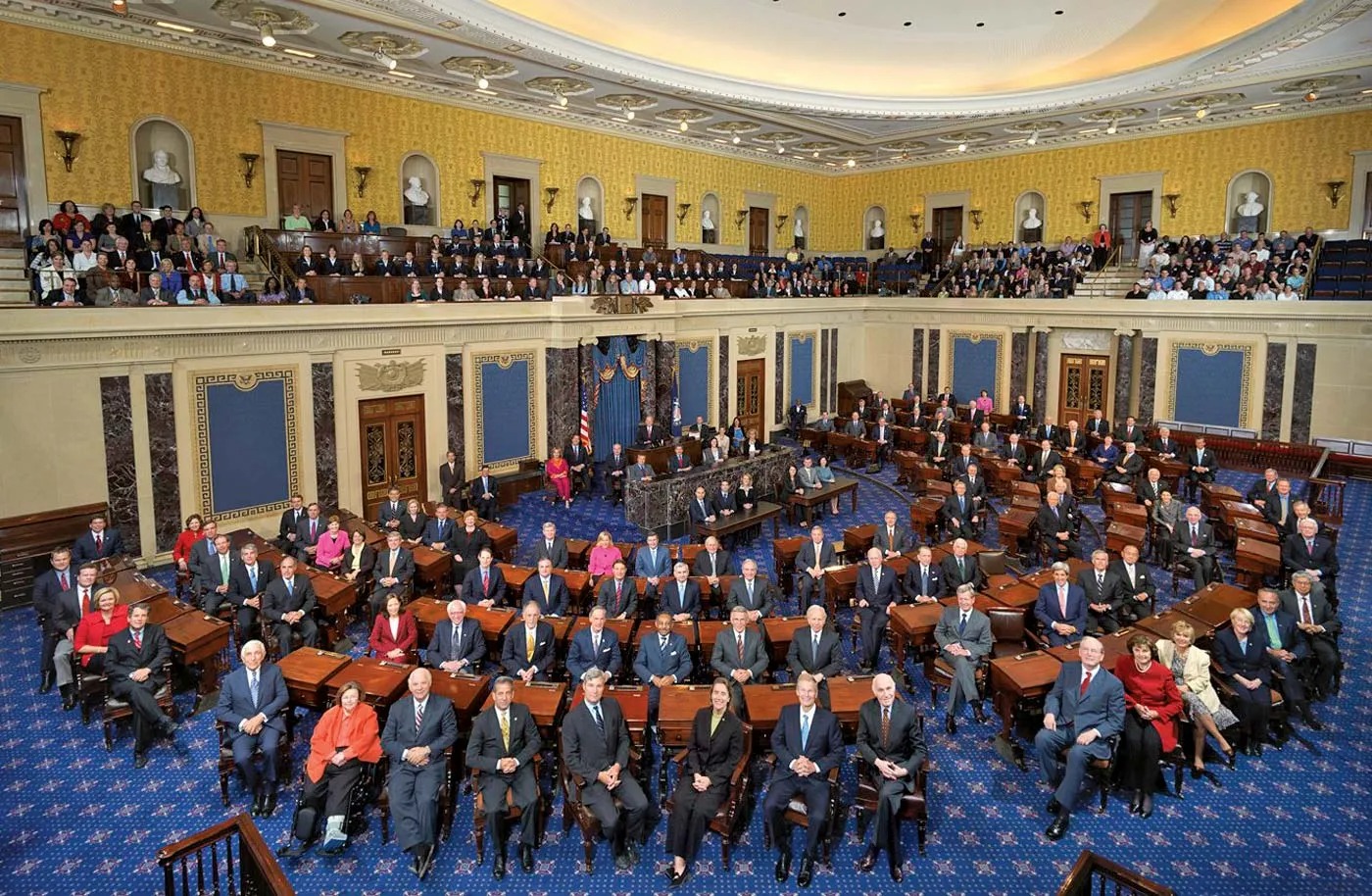The fiscal showdown in the General Assembly reached a critical juncture as the House of Delegates passed its version of the fiscal 2025 budget on Wednesday.
With a spending plan totaling $63 billion, the House’s budget closely mirrors that of the Senate, setting the stage for potential conflict over key funding measures.
One major point of contention between the two chambers revolves around the inclusion of a $1.3 billion tax and gaming expansion package to support future budgets.
While the House is pushing for these measures, Senate leaders, including Senate President Bill Ferguson, have dismissed them as nonstarters.

Senate (Credits: Reuters)
Despite this divergence, House Appropriations Chair Ben Barnes expressed optimism about reaching a compromise with the Senate during negotiations.
However, the fiscal outlook for the state is concerning, with projected deficits looming in the coming years. Legislative budget analysts have warned of a $1 billion deficit for fiscal 2026, growing to over $3 billion by fiscal 2028.
Much of this deficit is attributed to funding commitments, particularly related to the Blueprint for Maryland’s Future, a significant K-12 education funding reform effort.
The House’s approach emphasizes finding revenues now to address these projected shortfalls, with a focus on measures such as tax increases and gaming expansion. Senate Democrats prioritize fostering competitiveness and growth to address budgetary challenges.

House Members (Credits: Britannica)
The House’s budget plan relies on tax and fee increases contained in a companion budget reconciliation bill, including measures such as eliminating sales tax exemptions, imposing electric vehicle surcharges, and expanding gaming through iGaming.
These revenues are earmarked for funding education initiatives and addressing shortfalls in the Transportation Trust Fund.
During the House debate, Democrats rejected several proposed amendments from Republicans, leading to criticism from House Minority Leader Jason C. Buckel.
He argued that education spending should not take a back seat to other priorities and called for a reprioritization of spending.
The differences between the House and Senate budgets will be reconciled in a conference committee, with negotiations expected to extend into the coming weeks.
While Senate leaders remain firm on their opposition to certain revenue-raising measures, both chambers share common goals regarding long-term investments, highlighting the need to find common ground on budgetary matters.
























